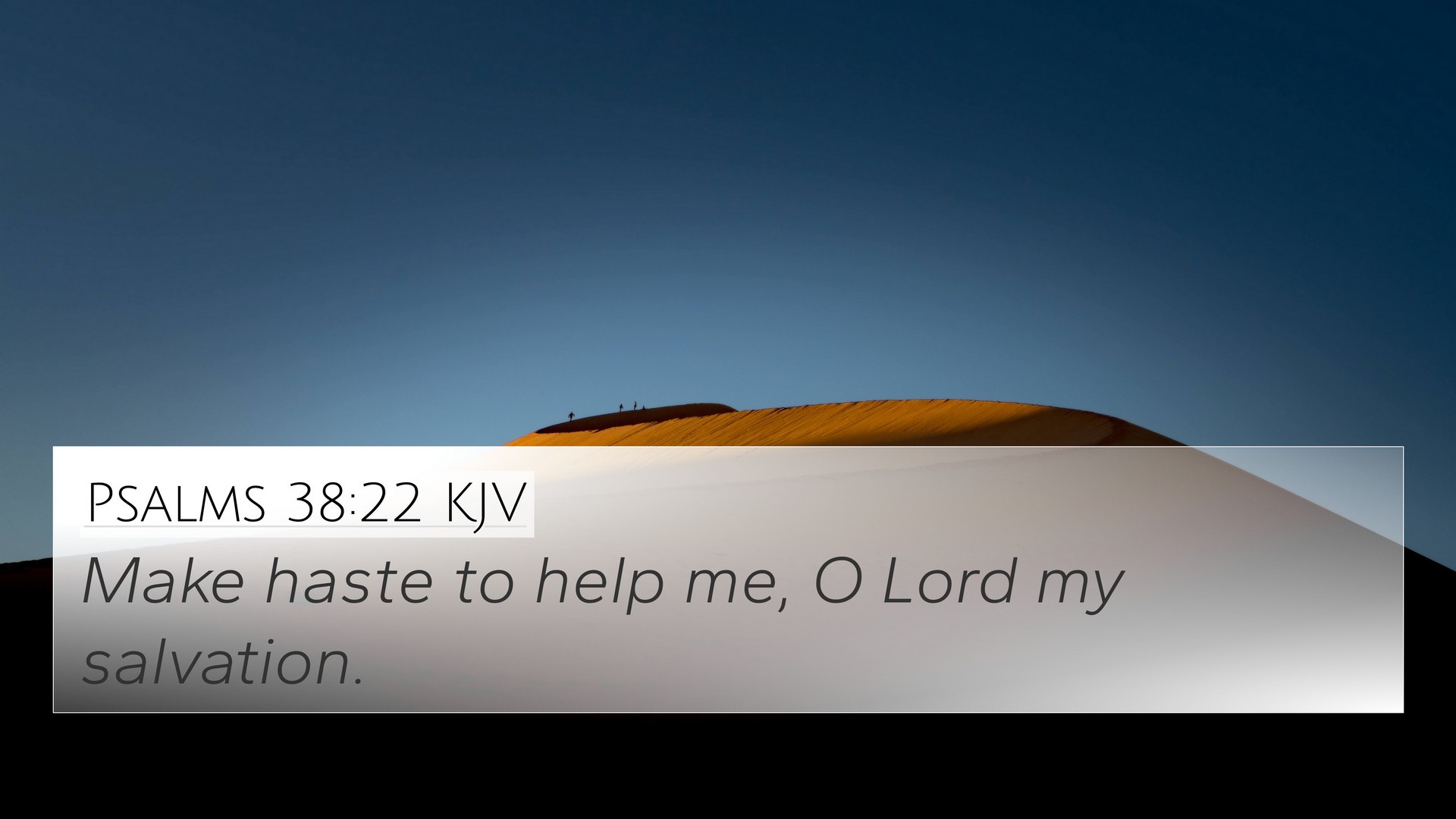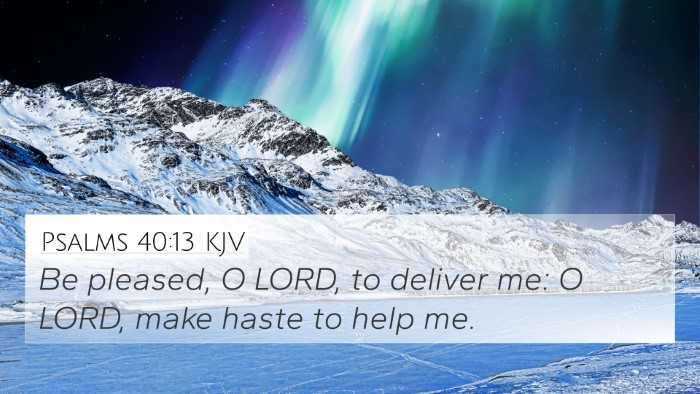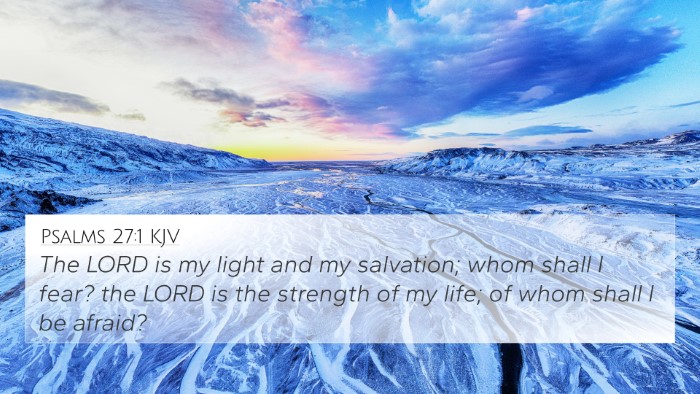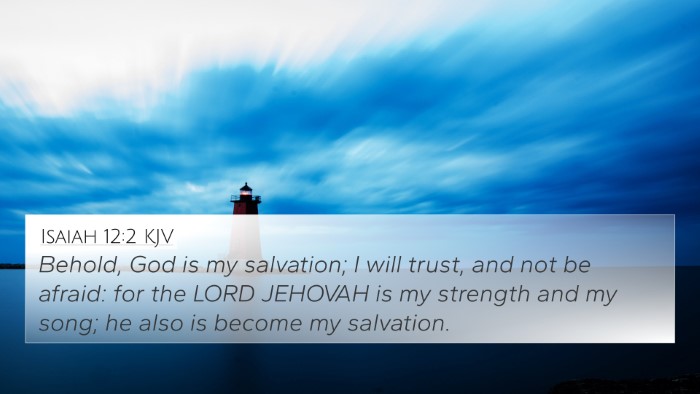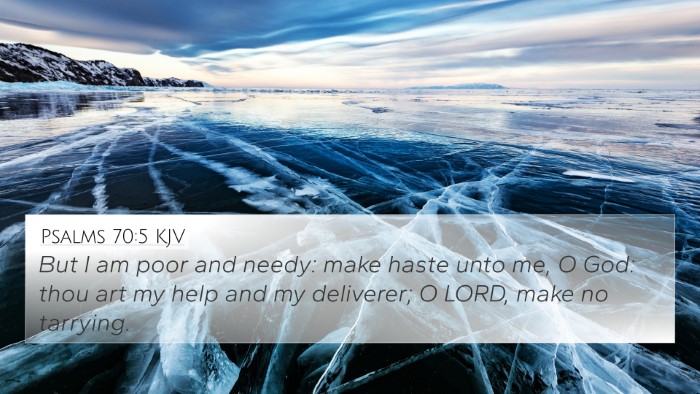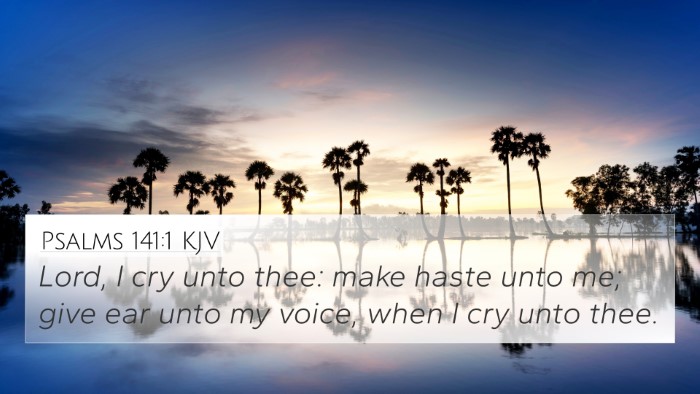Psalms 38:22 - Meaning and Interpretation
Psalms 38:22 states, "Make haste to help me, O Lord, my salvation." This verse encapsulates a plea for divine assistance, reflecting the deep sense of urgency felt by the psalmist. In understanding this scripture, we delve into its meaning through commentaries from Matthew Henry, Albert Barnes, and Adam Clarke.
Context of Psalms 38
Psalms 38 is a penitential psalm that expresses grief over sin and suffering. The psalmist acknowledges his guilt and the distress it brings, both spiritually and physically. The overarching theme of desperation leads to a cry for help—an essential aspect many face in their spiritual journeys.
Verse Analysis and Insights
According to Matthew Henry, the urgency in "Make haste to help me" reflects a profound recognition of the psalmist's dependency on God. The phrase highlights the belief that God's intervention is vital in times of trouble. This encapsulates the necessity of divine grace and mercy in recovery from sin and affliction.
Albert Barnes adds that the title "my salvation" indicates a personal relationship with God as Savior. It emphasizes faith in God’s ability to deliver us from trials, reinforcing the theme that acknowledging our helplessness is the first step toward restoration.
Adam Clarke elaborates on the emotional weight carried in this verse, noting that the psalmist's plea is grounded in a profound understanding of his own vulnerabilities and the need for divine rescue. Clarke further argues that the urgency is indicative of the immediacy of help that one seeks from God, which resonates deeply with human experience.
Cross-References for Psalms 38:22
In examining Psalms 38:22, several Bible verse cross-references can enrich our understanding:
- Psalms 40:13: "Be pleased, O Lord, to deliver me! O Lord, make haste to help me!" - A similar cry for immediate divine assistance, echoing the urgency of Psalms 38:22.
- Psalms 70:1: "Make haste, O God, to deliver me; make haste to help me, O Lord!" - Further emphasizes the recurring theme of seeking God’s prompt intervention.
- Isaiah 33:2: "O Lord, be gracious to us; we wait for you. Be our arm every morning, our salvation in the time of trouble." - Highlights reliance on God for salvation, linking to the personal nature of "my salvation."
- Romans 10:13: "For everyone who calls on the name of the Lord will be saved." - Connects the act of calling out for help with the assurance of salvation.
- Hebrews 4:16: "Let us then with confidence draw near to the throne of grace, that we may receive mercy and find grace to help in time of need." - Encourages believers to seek God in times of trouble, reflecting the urgency of Psalms 38:22.
- 2 Corinthians 12:9: "But he said to me, 'My grace is sufficient for you, for my power is made perfect in weakness.'" - Signifies the interplay of grace and human frailty, similar to the psalmist's plea.
- Philippians 4:6-7: "Do not be anxious about anything, but in every situation, by prayer and petition, with thanksgiving, present your requests to God." - Encourages bringing needs before God, paralleling the psalmist's approach.
Thematic Connections
This verse provides opportunities for comparative Bible verse analysis, especially when considering themes of salvation and divine help throughout scripture:
- The theme of prayer: Psalms 38:22 aligns with scriptures that emphasize the importance of prayer in seeking help from God, such as James 5:16.
- Repentance and restoration: Reflecting the psalmist's call for help, Luke 15:18 resonates as the prodigal son cries out for his father, mirroring the need for divine intervention.
Conclusion
Psalms 38:22 serves as a poignant reminder of humanity’s need for divine assistance and salvation. Through understanding this verse in light of biblical commentary and cross-references, believers can see the interconnectedness of scripture, encouraging deeper engagement with God through prayer and trust.
